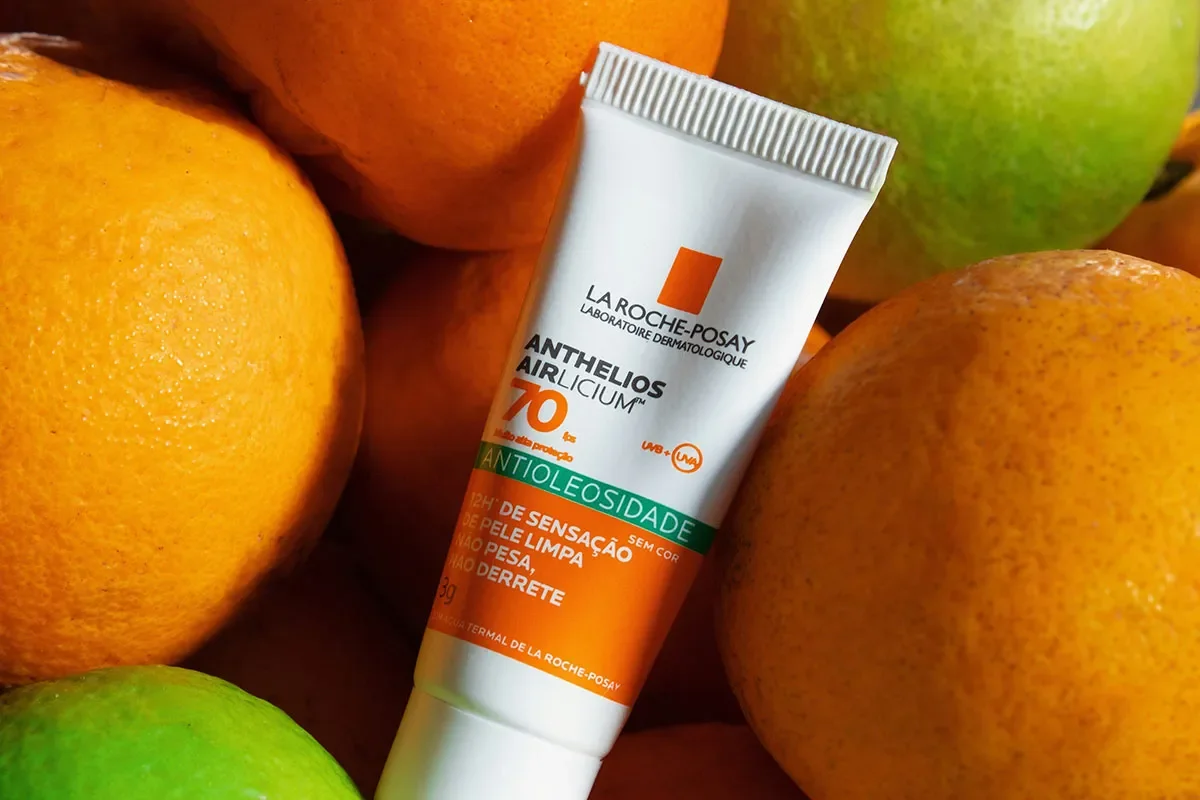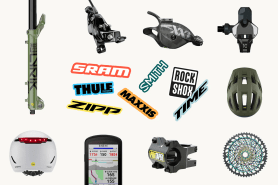

Getting outside means being exposed to the sun. It may feel great, but the sun’s UV rays take a toll on your skin. Protecting your skin is important as an outdoor athlete, and that’s why sunscreen is essential to wear when exploring the great outdoors.
Whether you’re out for a long hike, kayaking along the river, or just running a trail, if you’ve ever burned so badly from sun exposure that you could barely put on a t-shirt or started peeling after a long day out, it may be time to get yourself some sunscreen.
As summer approaches, it’s important to combat UV radiation with the right sunscreen. We all want to feel younger and prevent skin aging and skin cancer.
Our top choice is Babo Botanicals Sheer Mineral Sunscreen Lotion SPF 50. This lotion sunscreen is a mineral sunscreen, so it doesn’t use chemicals for protection. It is great as a sports sunscreen and also has moisturizing properties, so it rubs in better and keeps your skin from drying out. It’s our all-round favorite sunscreen for being outside.
But that’s not all: we’ve got sunscreen picks for the best invisible sunscreen, the best chemical sunscreen, the best sunscreen stick, the best mineral sunscreen for darker skin tones, and the best sunscreen to protect the reefs. Keep reading to find the perfect sunscreen for you.
This post contains affiliate links. Outdoors.com may earn a commission when you make a purchase through these links. Thank you for your support.
The Best Sunscreen Products for 2024
- Best Sunscreen Overall: Babo Botanicals Sheer Mineral Sunscreen Lotion SPF 50
- Best Invisible Sunscreen for All Skin Tones: Supergoop! Unseen Sunscreen SPF 40
- Best Chemical Sunscreen: La Roche-Posay Anthelios Melt-In Milk Sunscreen SPF 100
- Best Stick Sunscreen: CeraVe Mineral Sunscreen Stick SPF 50
- Best Mineral Sunscreen: Supergoop! Mineral Sheerscreen SPF 30
- Best Mineral Sunscreen for Darker Skin Tones: Peter Thomas Roth Max Mineral Tinted Sunscreen SPF 45
- Best Reef-Safe Sunscreen: Thinksport SPF 50+ Mineral Sunscreen
Best Sunscreen Overall: Babo Botanicals Sheer Mineral Sunscreen Lotion SPF 50

Stats:
- SPF: 50
- Type of protection: mineral
- Active ingredients: Zinc Oxide 20%
- Broad spectrum: yes
This gentle sun protection is made for sensitive skin but is durable against water and sweat-resistant enough to work for athletes too. It’s EWG Verified, which means it’s made with safer chemicals for human health and the environment—a major bonus.
It has a super high SPF 50 and is effective against UVA and UVB rays. The best part is the hydrating factor, so it nourishes your skin and also protects it. Zinc-based sunscreens can often leave the skin dry, so this sunscreen adds sunflower oil and shea butter to allow you to rub it in.
There’s no fragrance, which eliminates irritation from that. This sunscreen was even the 2024 “Best Sunscreen for Sensitive Skin” award winner. This sunscreen doesn’t give a white cast and blends in. It has all-day protection and will stay on even if you’re running or swimming. Designed to stay on longer, it may be a bit heavy for hanging around town, but for athletes wanting protection from a physical sunscreen that actually rubs in, this is the best pick.
Why We Love It
- Moisturizing
- Great for sports
- Protective
- Reef safe
What Could Be Improved
- Thicker than chemical sunscreen
Best Invisible Sunscreen for All Skin Tones: Supergoop! Unseen Sunscreen SPF 40

Specs:
- SPF: 40
- Type of protection: chemical
- Active ingredients: Avobenzone, 3%, Homosalate 8%, Octisalate 5%, Octocrylene 4%
- Broad spectrum: yes
The Unseen Sunscreen is a highly rated sunscreen from Supergoop! not only for its UVA protection but also for its great blending properties. This is a chemical sunscreen, and it will not give any white cast, which can happen on darker skin types with zinc or titanium sunscreens.
It’s basically see-through and rubs on smoothly without a greasy feel at all. This sunscreen is incredibly light, blends in easily, and is perfect for people who really hate sunscreen but want to protect their skin.
Sunscreen is notorious for feeling greasy, heavy, thick, and changing the color of your skin. This sunscreen is none of those things. It literally is invisible, light, and soft on your skin.
If you’re looking for a sunscreen that is not a mineral sunscreen and won’t give you a white mask, this one is lightweight and dries with very little sheen or greasiness.
Why We Love It
- Invisible
- Not greasy
- Light
What Could Be Improved
- Chemical base
Best Chemical Sunscreen: La Roche-Posay Anthelios Melt-In Milk Sunscreen SPF 100

Specs:
- SPF: 100
- Type of protection: chemical
- Active ingredients: Avobenzone 3%, Homosalate 15%, Octisalate 5%, Octocrylene 10%
- Broad spectrum: yes
This SPF 100 chemical sunscreen is great for sensitive skin and for preventing aging and skin cancer. With such high protection, you’re good to participate in any sport outdoors.
The La Roche-Posay Melt-In Milk sunscreen blends in really well, as do most chemical sunscreens, and it fades quickly into your skin color. It’s a broad-spectrum sunscreen and is not greasy or thick. It’s very light and easy to put on. It’s smooth and rubs in easily.
This sunscreen stays on well and doesn’t need to be applied tons of times, but you will still need to reapply it, as you do with all sunscreens, after getting into the water or after sweating. It lasts for many hours and guarantees protection with such a high SPF.
If you don’t mind using a chemical sunscreen and you’re looking for a smooth sunscreen that isn’t bothersome or greasy, this is for you.
Why We Love It
- Very light
- Great protection
What Could Be Improved
- Chemical base
Best Stick Sunscreen: CeraVe Mineral Sunscreen Stick SPF 50

Specs:
- SPF: 50
- Type of protection: mineral
- Active ingredients: Titanium Dioxide 6%, Zinc Oxide 4.7%
- Broad spectrum: yes
For outdoor athletes on the go, a stick of sunscreen is a great choice. Especially if you are a rock climber or just someone who doesn’t want greasy hands, applying your sunscreen via a stick is ideal.
CeraVe is well known for making products that are better for those with sensitive skin or eczema. This sunscreen stick is travel-friendly and mess-free, since it’s a stick and not a liquid like most sunscreens. Because it’s a stick, however, things may get stuck on it or you may need to clean it in order to keep it hygienic.
This product contains ceramides and hyaluronic acid. Ceramides help protect the natural barrier of your skin, and hyaluronic acid helps provide a hydration boost. This is a mineral sunscreen, so it does not contain any toxic chemicals, but there are reef-protection concerns with the titanium. It has a higher SPF protection than some of the other sunscreens, so that’s a win in this area for keeping your skin cancer-free outdoors.
CeraVe is recommended by dermatologists and for good reason. It does not clock pores and is better for people who want to go with a recommendation by a doctor over a sunscreen that just looks better or blends well with the skin. For those concerned about their skin and want extreme protection without the hassle of rubbing any sunscreen in, this sunscreen is the way to go.
Why We Love It
- Easy to apply
- Great for sensitive skin
What Could Be Improved
- Hard to apply over your whole body
Best Mineral Sunscreen: Supergoop! Mineral Sheerscreen SPF 30

- SPF: 30
- Type of protection: mineral
- Active ingredients: Zinc Oxide 17.5%
- Broad spectrum: yes
The Supergoop! brand was formed on feel-good formulas in sunscreens that you’ll actually want to use. While they have a variety of formulas, this mineral sunscreen stands out. It works to protect against signs of aging like fine lines and wrinkles.
Mineral sunscreens can offer an immense amount of protection, but they can sometimes go on like chalk, leaving your skin dry, cast in white, and they often have a texture that isn’t very appealing. Supergoop! does a great job with their Supergoop! Mineral Sheerscreen that has lightweight yet strong protection to shield your skin from blue light as well as UVB and UV rays.
This is a vegan, gluten-free, and cruelty-free sunscreen that has a special SheerMatrix technology that gives your skin a natural finish, with all the protection of hefty zinc.
Its lightweight formula is enhanced with bush clover extract, aloe leaf juice, and squalane to add hydration and serve as a base if you want to put anything on top of the sunscreen. It’s not greasy and has a matte finish, so it won’t bother you throughout the day.
Easy to apply and suitable for all skin types, the Sheerscreen doubles as a makeup primer, making it convenient for daily use. Its matte finish and compatibility with makeup make it a preferred choice for everyday wear, offering a seamless integration into skincare routines.
Why We Love It
- Blends in
- Not greasy
- Cruelty free
What Could Be Improved
- Low SPF
- More costly than other sunscreens
Best for Darker Skin Tones: Peter Thomas Roth Max Mineral Tinted Sunscreen SPF 45

- SPF: 45
- Type of protection: mineral
- Active ingredients: Titanium Dioxide 1.93%, Zinc Oxide 19.24%
- Broad spectrum: yes
Peter Thomas Roth is a popular beauty brand that offers a fantastic mineral sunscreen that won’t give a white cast with its tint. It’s for sensitive skin and has water-resistant qualities so it will stay on your skin for longer.
This mineral sunscreen works fantastic for darker skin tones and uses only mineral protectants. It has nourishing ingredients to protect the skin but also neutralize redness and make your skin look radiant with safflower extract and vitamins C and E.
This sunscreen is light, blends in well, and almost works like a foundation. It has a tint, so it won’t give a white cast, but some reviewers do ask for more colors, as it only has one color tint. This sunscreen blends in well, despite being a physical sunscreen, and it lasts for a long time.
Why We Love It
- No white cast
- Brightens and protects skin
- Water resistant
What Could Be Improved
- Only one skin tone option
Best Reef-Safe Sunscreen: Thinksport SPF 50+ Mineral Sunscreen

- SPF: 50
- Type of protection: mineral
- Active ingredients: Zinc Oxide 20% (non-nano)
- Broad spectrum: yes
This sunscreen is EWG Verified, meaning it is top-rated when it comes to protecting human wearers and also the environment by using responsible ingredients.
This award-winning sunscreen was specifically created for athletes and people spending most of their time outdoors. On top of sun protective clothing, use this sunscreen to protect skin and provide UVA protection for athletes spending all day outdoors.
It’s dermatologist tested, natural, and completely mineral based, using only zinc. It’s nontoxic, BPA free, reef safe, and works on the face and the body.
Thinksport’s mineral sunscreen also absorbs easily, doesn’t feel oily, and has water resistance for up to 80 minutes (then you must reapply). You don’t have to wait an hour for it to work; it works immediately. The list of chemicals it doesn’t include is long, and that makes us feel good when we use it. There’s even no gluten, dairy, parabens, or phthalates and no animal testing.
Why We Love It
- Good for sensitive skin
- Reef safe
- Water resistant
- No titanium
What Could Be Improved
- Some white cast
- May not fully blend in
Buying Guide: What to Look for in a Sunscreen
Dermatologists recommend that people apply sunscreen on exposed skin when outside (even on cloudy days). Other methods of sun protection are valuable for protecting against the sun’s rays, like wearing hats, long-sleeved shirts, or other protective clothing. Some clothing even comes with UPF ratings. Sunglasses can help protect your eyes from the sun’s UVB rays, too. But sunscreen is the cherry on top when it comes to sun protection.
The American Academy of Dermatology recommends to always choose a sunscreen that has an SPF of 30 or higher. Make sure your sunscreen has broad-spectrum protection, so it protects against both UVA and UVB radiation.
Check to see how much the sunscreen costs per ounce, as the prices for sunscreen can vary drastically. Choosing a sunscreen that is water resistant can be helpful, especially if you’ll be sweating or swimming. As always, don’t forget to reapply.
Physical or Mineral Sunscreens
Physical or mineral sunscreens use inorganic, mineral-based ingredients like titanium dioxide and zinc oxide. These work when the minerals stay on top of the skin to deflect and scatter damaging UV rays away from the skin. Inorganic sunscreens protect the skin by blocking 90% of ultraviolet radiation. However, physical products leave a white cast if they do not contain a colorless or tinted substance.
Make sure you get at least a 10% concentration of zinc oxide to get broad-spectrum coverage when purchasing physical sunscreens.
Hybrid Sunscreens
Hybrid sunscreens include mineral and chemical sunscreen active ingredients. Mineral actives have UV-reflective properties and chemical ingredients have the UV-absorbing and altering qualities that work to prevent damage to the skin. They are potentially more effective than either just on their own.
However, mineral components like zinc oxide are often chalky. It gives a white cast, which many people do not like, and it does not work well for darker skin tones.
Hybrid options may offer more protection and are easier to blend in. Getting a sunscreen with at least 7% zinc is ideal, with blue light/HEV light blocking (a damaging light spectrum that can destroy collagen and cause hyperpigmentation). Typically, this means sunscreens that contain iron oxides or free-radical-fighting antioxidants.
Chemical Sunscreens
Chemical sunscreens can cause eye burning and irritation for more sensitive skin types, but they show up virtually clear on your skin.
Get to know the ingredients if you choose a chemical sunscreen. The FDA’s recommended active ingredients are avobenzone, ecamsulone, homosalate oxybenzone, octisala, and octocycline. For children, it’s best to avoid the use of sunblock containing oxybenzone.
Reef-Safe Sunscreen
Hawaii banned sunscreens containing the chemical active ingredients oxybenzone and octinoxate because studies have shown these chemicals have harmful impacts on Hawaii’s marine environment and ecosystems, including coral reefs.
Benzene, a potential carcinogen, isn’t an ingredient in sunscreen, but it is a contaminant in spray sunscreens and can also be harmful to reefs. Several sunscreens have been recalled because of their benzene levels. Sunscreen lotions do not usually contain benzene.
Ingredients like oxybenzone or octinoxate are often flagged for environmental concerns. If you want to buy your sunscreen accounting to what is safer for coral reefs, choose sunscreen manufacturers that avoid these ingredients:
- Oxybenzone
- Octinoxate
- Octocrylene
- Homosalate
- 4-methylbenzylidene camphor
- PABA
- Parabens
- Triclosan
- Nano-sized zinc or titanium (if it can rub in, it’s probably nano-sized)
- Microplastics, such as “exfoliating beads”
Frequently Asked Questions
How much sunscreen should I use?
You can fill your palm with a quarter size of sunscreen or simply judge based on covering the area of skin you want to protect, without using so much it turns to a soupy consistency and doesn’t rub in.
Some sunscreens need to be applied early and some work right away. Check the back of your sunscreen. It’s recommended to wear sunscreen every day or at least when you spend time outdoors for long hours. Always wear additional sun protection like hats or long sleeves.
What is the healthiest sunscreen to use?
Natural sunscreens that have minerals as protection instead of chemicals are safer and healthier. You may also research “reef-safe” sunscreens or EWG Verified sunscreens that are certified to be healthier for humans and for the environment. These sunscreens avoid harsh chemicals and ingredients that may harm humans and reefs.
What’s the difference between physical and chemical sunscreens?
Physical sunscreens use a physical barrier to protect the skin from UV rays. The mineral actives work as a physical barrier that sits on the skin as protection. Chemical sunscreens actually absorb UV rays and convert them into heat that gets released from the skin. Technically, all these active ingredients, whether minerals or chemicals are actually all chemicals, so it’s more accurate to refer to mineral sunscreens as physical sunscreens.
Only two physical sunscreen ingredients have been approved by the FDA: zinc oxide and titanium dioxide. Research suggests that physical sunscreens protect skin by creating a barrier but also by absorbing the rays.
Physical sunscreens are not necessarily natural and may use harmful nanotechnology to break down zinc oxide or titanium dioxide, which is also not good for the environment and reefs. These minerals do not glide smoothly over the skin, so manufacturers may use synthetic chemicals to produce that effect. Always check the sunscreen ingredients.
Chemical sunscreens cause a reaction on your skin, so instead of forming a barrier, a chemical reaction occurs and converts the UV light into heat to protect the skin.
Which is the best sunscreen recommended by a dermatologist?
Dermatologists recommend CeraVe Mineral Sunscreen Stick SPF 50. They recommend choosing a sunscreen that has anti-aging properties; free radicals are ideal. Choose a sunscreen that is broad spectrum and has an SPF of at least 30. Thinksport SPF 50+ Mineral Sunscreen is also reviewed by dermatologists and is a reef-safe sunscreen that goes on well and has great protection.
What is the most recommended sunscreen?
Some of the most recommended sunscreens include Babo Botanicals Sheer Mineral Sunscreen Lotion SPF 50, Supergoop! Unseen Sunscreen SPF 40, CeraVe Mineral Sunscreen Stick SPF 50, and Thinksport SPF 50+ Mineral Sunscreen.
How often should I apply sunscreen?
Many people suggest wearing sunscreen every day. It’s recommended to reapply sunscreen if you swim or spend a few hours outdoors and your sunscreen is not sweat resistant.
Reapplying every two hours is suggested or at least twice if you’re at the beach or outdoors in the sunny mountains all day. Skin tone is not an indicator of how much sunscreen you need, and all skin types should apply sunscreen if they hope to protect against skin cancer and harmful rays.
Is there a difference between face and body sunscreen?
Some facial sunscreens may have ingredients that are for sensitive skin or are designed to not clog pores. The skin on your face is more sensitive than the rest of your body. However, many sunscreens are usable for the face and body and work well for both. Just check the reviews, descriptions, and information on the ingredients in order to see if the sunscreen you have works for your face and body.
Some people also prefer to use a lighter sunscreen for the face, as opposed to the body, and may also want to find a sunscreen that blends in better or incorporates anti-aging properties and moisturizes as well as provides sun protection.
It’s recommended to not use spray sunscreen on your face, since inhaling the chemicals used in spray sunscreens may cause health issues. Sunscreens designed for the face may also be formulated to protect against eye irritation. Many chemical sunscreens can cause the eyes to burn or get irritated, and a face sunscreen may be better if that is a concern for you.
Is my sunscreen killing coral reefs?
According to Save the Reef: “Scientists have found that an estimated 28,000,000 pounds of sunscreen is deposited into our oceans and reefs every year.”
Hawaii banned chemical sunscreens in 2018, and the chemicals are thought to damage the reefs. In general, it’s not a bad idea to just get reef-safe sunscreen if that’s a concern for you.
Reef-safe sunscreens often contain less harmful elements for humans too. It’s not just enough to look for a mineral sunscreen, you’ll need to make sure they don’t contain microscopic particles. Usually, if they rub in too well, they have microscopic particles, as minerals do not rub in very well to the skin.
Final Thoughts
Finding the best sunscreen can mean the difference between feeling oily or just feeling protected against harmful UV light. Sunscreens are all different, and so is skin, so finding the right sunscreen for you may take some testing.
You want to make sure a sunscreen stays on for a long time, doesn’t clog your pores, and stands up to whatever activities you’re using it for—whether it’s just an outdoor commute or an all-day adventure.
Our top pick for the best all-around sunscreen is the Babo Botanicals Sheer Mineral Sunscreen Lotion SPF 50. This sunscreen is all natural and balances moisture and protection.
But whether you’re lathering on sunscreen for a short walk or gearing up for a kayak weekend away, we’ve covered enough choices that you should be able to find the right sunscreen for you. Put on that sunscreen and you’re ready to go!










Pingback: Por qué el protector solar es el equipo para actividades al aire libre más subestimado - Notiulti